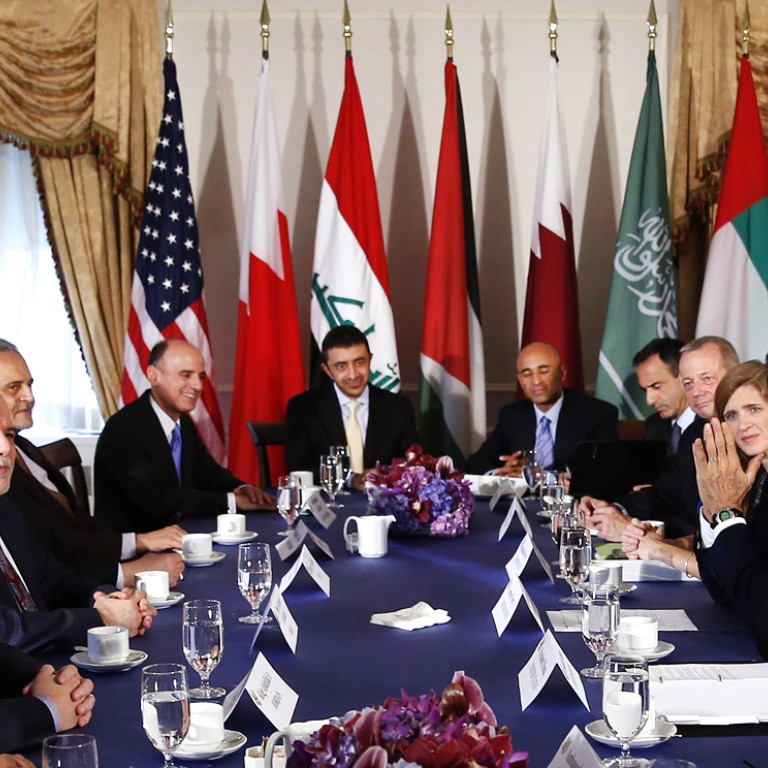
Middle East experts question staying power of anti-Islamic State alliance
Middle East experts question the original motives and the resilience of the grouping that has assembled to go to battle with Islamic State
US President Barack Obama has pulled off a diplomatic coup, knitting together a coalition of Arab nations to strike jihadis, but experts question its staying power.
In his speech to the UN on Wednesday, Obama warned the battle against extremism would be a multi-faceted "generational task, and a task for the people of the Middle East themselves".
State Department officials insist the five Arab nations, who joined United States fighter jets in an air campaign over Syria to hit the Islamic State group, are in it for "the long haul".
Washington is aware of the symbolic importance of having Sunni-ruled states backing strikes against Sunni extremists, still known to US officials as ISIL.
And Obama met leaders of Bahrain, Jordan, Saudi Arabia, Qatar and the United Arab Emirates on Tuesday to thank them.
"This is a threat that unifies everybody, and everybody's head around the table was nodding," a State Department official said. "Everybody … agreed that there are times in the world when you need to make a stand."
Experts have cast doubt on how united the coalition will remain, given the divisions between many Arab nations, and the ever-present spectre of Sunni-Shiite conflict.
"We have a confluence of interests, we have a common enemy, but the question really is are they in it for the long haul? Who knows?" said Kim Holmes, of conservative think-tank The Heritage Foundation.
"I mean they didn't have a preponderance of the air power, they dropped a few bombs."
Secretary of State John Kerry, who led the diplomacy to piece together the coalition, said the more partners there were the greater its legitimacy.
"There will be more recruits ... morale will go up. People will be more willing to fight," he said.
But Holmes predicted "if ISIL were to be degraded or pushed back significantly I would expect some of the Arabs to start dropping". Different agendas were also driving Arab cooperation, and could presage a much broader Middle East conflict.
Saudi Arabia wanted "control and influence" in the event that regime change arrived in Syria and President Bashar al-Assad was ousted, said Ramzy Mardini, an expert at the Atlantic Council.
"The Islamic State may only be the rehearsal," he said. "The real show continues to be the power politics in the region and the contest over Syria."
US-led airstrikes targeted Syrian oil installations held by Islamic State yesterday, killing at least 19 people. The strikes aimed to knock out one of the militants' main revenue streams - black market oil sales that the US says earn up to US$2 million a day for the group.
On the ground, Syrian government forces took back an important industrial area near Damascus from the rebels, said Syrian activists.
The Syrian air force has carried out fewer air strikes in the past three days - probably because of the coalition presence - but bombing continued in a rebel-held area near Damascus, killing at least 8 people, including children, activists said.
- Iraq's prime minister yesterday claimed his country's intelligence operation had uncovered a plot for an imminent attack on subway systems in the United States and Paris.
In New York for a UN meeting, Prime Minister Haider al-Abadi said the plot was the work of foreign fighters for Islamic State. Asked if the attacks were imminent, he said, "Yes." Asked if the attacks had been thwarted, he said, "No." However, two senior US government security officials said there was no evidence to back up the claims.
